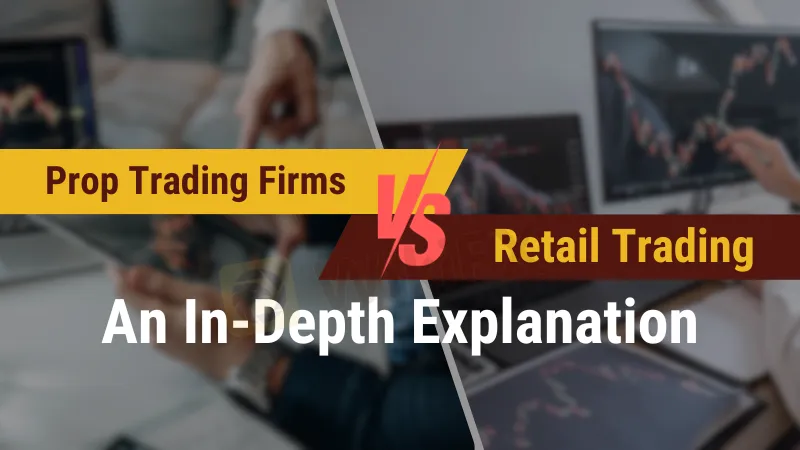Abstract:Know the differences between Proprietary Trading Firms and Retail Trading in-depth, including capital usage, strategies, risk, and rewards. Ideal for traders choosing their path.

In the financial markets, traders often grapple with the decision of whether to join a proprietary trading firm or to trade independently as a retail trader. Both paths offer unique benefits and challenges. This guide aims to provide a detailed comparison to help traders decide which approach aligns best with their goals and trading style.
Understanding Proprietary Trading

Proprietary trading, commonly referred to as prop trading, involves trading companies funds instead of individual capital. Here's a deeper dive into its dynamics:
1. Firm's Capital Usage: Unlike retail traders, prop traders use the firm's resources. This allows them to take larger positions and potentially earn more significant profits.
2. Strategies and Resources: Prop trading firms often engage in sophisticated trading strategies, including high-frequency and algorithmic trading. They have access to advanced market data and research teams.
3. Profit Sharing and Compensation: Many prop firms offer a profit-sharing model where traders receive a percentage of the profits they generate. Additionally, some provide a base salary and performance bonuses.
4. Risk Management: Prop firms typically have strict risk management protocols, ensuring traders do not exceed predetermined loss thresholds.
Retail Trading: Independence and Flexibility

Retail trading involves individuals trading their capital through brokerage accounts. Heres what makes it distinct:
1. Personal Capital: Retail traders utilize their own money, which limits their trading capacity compared to prop firms but gives them full control over their trades.
2. Strategy Freedom: Retail traders have the liberty to implement any trading strategy and are not bound by a firm's guidelines.
3.Risk and Reward: All profits and losses are borne solely by the retail trader. This can be both an advantage and a risk, depending on the trader's skill and market conditions.
Comparative Analysis: Key Points
Let's compare these two trading paths on various fronts:
1. Capital Resources:
Prop firms provide more significant capital, allowing for higher leverage and larger trades.
Retail traders are limited to their funds, which might restrict their market play but also caps their risk exposure.
2. Access to Technology and Data:
Prop firms have superior technology and data access, offering a competitive edge in market analysis and trade execution.
Retail traders rely on public platforms, which might lack the advanced features available to prop traders.
3. Profit Sharing vs. Full Ownership:
Prop traders share profits with their firms, typically receiving a portion of the gains.
Retail traders retain 100% of their profits, but also 100% of their losses.
4. Risk Management and Leverage:
Prop firms have stringent risk management rules, often limiting traders ability to take high-risk positions.
Retail traders have more freedom with risk but must be self-disciplined to avoid significant losses.
5. Learning and Environment:
Prop trading can provide a structured learning environment with mentorship and peer learning.
Retail trading requires self-directed learning, though communities and online resources are available.
Real-World Examples
1. Prop Trading Firm Example: Firm A offers its traders a 50-50 profit share and access to a $1 million trading account after passing their evaluation program. They specialize in algorithmic trading and provide extensive training.
2. Retail Trading Scenario: Trader B starts with a $10,000 account, trading Forex. They use a mix of technical and fundamental analysis to make trades and bear all risks and rewards.
Conclusion
Choosing between prop trading and retail trading depends on individual preferences, risk tolerance, and trading goals. Prop trading offers a supportive environment, larger capital, and advanced tools but comes with profit sharing and stricter rules. Retail trading provides independence and full profit retention but requires self-discipline and limits capital and resources. Both paths require a solid understanding of the markets, risk management, and continuous learning.
In summary, your decision should be based on your financial goals, trading experience, risk appetite, and preference for independence versus structured environments. Both paths offer opportunities for success, but they require different approaches and mindsets.












